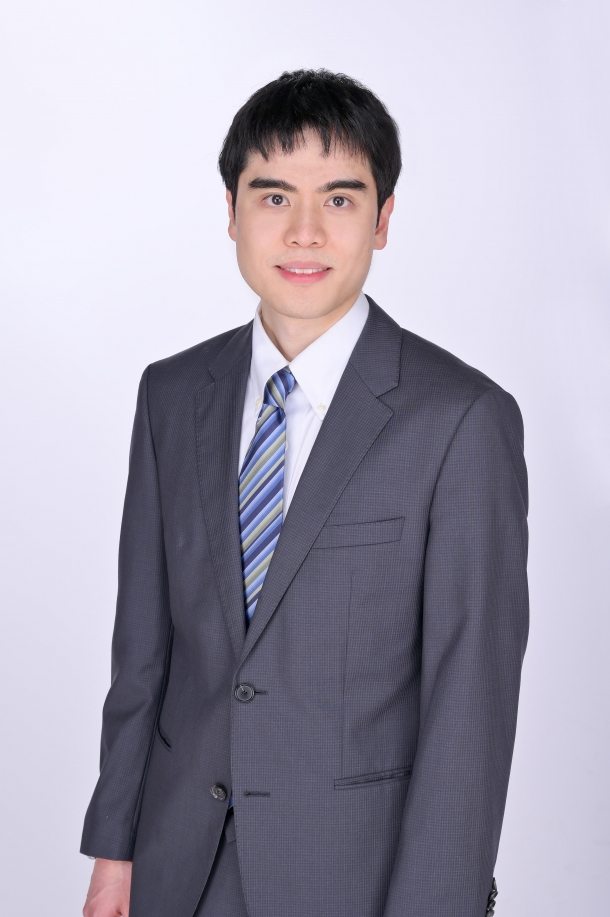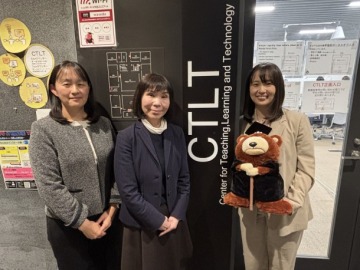Spring Semester 2022 Waseda University Presidential Teaching Award
Subject:Contemporary Political Theory II 01
Eric CHENG
This course in the English Degree Program was for the most part taught face-to-face in the spring semester of AY2022. Professor Cheng adopted a teaching style that combined lectures and discussions to create an atmosphere where students felt comfortable expressing their views. By having students give feedback on how the class was proceeding, he made adjustments to what his lectures covered according to his students’ level of understanding. His meticulous and ingenious structure was highly rated by his students.
Developing an atmosphere of where students feel safe to discuss by devising a structure that draws out students’ interests
This 15-lecture course in the English Degree Program (EDP) is for second-year students and above in the School of Political Science and Economics. During the spring semester of AY2022, 21 students enrolled in the course. It was, for the most part, conducted face-to-face. Zoom participation, however, was made available for international students who could not enter Japan due to COVID-19 border restrictions.
Before the first class, Professor Cheng assigned students a two-page reading and invited them during the class to share their reactions. “I wanted to start with a short reading to get the students talking. The goal of the first class was to ‘hook’ the students – to get them interested. I wanted to create an atmosphere where everyone felt safe to share their views.” The course was subsequently divided into three units on the theme of distributive justice. The first unit introduced students to a range of divergent perspectives on how much wealth the government should redistribute. In the second unit, the course delved deeper into special topics regarding distributive justice, such as the issues of merit and luck. And in the third unit, the course considered distributive justice from a global perspective, not just from the perspective of one specific country. During the last class, Professor Cheng tried to change the mood a little bit. He asked the students to watch the movie ‘A Christmas Carol’ (1951) before class, and then discussed the movie during class. Professor Cheng likes to select classic films, a hobby of his, to end his classes. “I think it’s a fun way to end the semester. It gives my students a chance to ‘apply’ the themes of the class to a different context. It also allows me to share a personal hobby, and to force them to watch a film in black-and-white!,” he reflected.
Interactive classes are realized by flexibly adjusting lecture content based on students’ reactions.
Professor Cheng arrived at Waseda in 2021, and AY2022 was the first time he taught this subject. “I had taught a related course at the University of Toronto,” said Professor Cheng. “I also taught students during my time as a PhD student at Duke University, both as a teaching assistant (TA) and later as an instructor of record. I graded assignments, led discussions, and gave lectures. I had the opportunity to observe how several professors taught, and I adopted what I thought were useful teaching methods from each of those professors. I was lucky to have that experience. I also think that dividing the course into three units gave it a logical progression.”
Students were required to post 150-200 word reflections on Moodle before each class on week’s readings. This helped Professor Cheng get an idea of what the students were interested in before the class. If he felt that the students did not understand the readings well, he would adjust the content.
He also asked students to give informal feedback on the course during the third class of the semester . Students were asked to submit their feedback not on Moodle, but on paper, without revealing their names. “The students were very happy to know that I took their views and experiences seriously. The best way to learn what they are enjoying and what they are not enjoying is to ask them, but in a way that allows them to feel like they will not be judged or penalized for being honest,” said Professor Cheng.
Rather than a one-way lecture, Professor Cheng’s teaching style blends lectures and discussions. He encourages student participation and strives to make his classes interactive. In the classroom, Professor Cheng likes to use the whiteboard to make explanations in a flexible way. He says, “For online classes, I use PowerPoint. But for face-to-face classes, I like to use the whiteboard because it helps students visualize what is being discussed in real-time. The double whiteboards in each classroom are an especially good thing at Waseda. When one board is full, I don’t have to erase it, and can just ‘slide’ to the other one. It is very convenient!”
Grading was based on two essays (70%) and attendance and participation (30%). Professor Cheng decided to assign essays instead of exams in order to give students opportunities to develop their own ideas, to delve deeply into a reading or two of their choice, and to improve their writing skills. In addition, the essays were graded by the instructor and TA, and students were offered the opportunity to receive feedback on rough drafts of their essays. Each student had his/her two essays graded by the same person. Professor Cheng believes that such a policy ensures consistency in evaluation, and prevents the students from feeling confused. He also believes that giving TA’s opportunities to grade and to give feedback on rough drafts allows them to build their confidence and to gain valuable professional experience.
A clear awareness of what you want to accomplish is paramount for both instructors and students.
Regarding his impression of Waseda’s students, Professor Cheng said, “They are highly motivated and eager to learn. It is great to have a mix of students, including exchange students, from different countries and backgrounds. This diversity allows for very interesting discussions, and helps students consider issues from multiple perspectives. By keeping my classes as interactive as possible, I can play my students’ views off of one another, and I often learn from perspectives that I did not anticipate!”
Professor Cheng’s experiences at universities and graduate schools abroad were very helpful in establishing his teaching methods. “Through my various experiences, I was able to figure out what I am good at and what I want to accomplish in the classroom. It also allowed me to build confidence. I think it is very important for instructors in general to have clear ideas of what they want to accomplish. It can take some time to figure this out, but I think that doing so is essential. During this class, I tried to encourage my students to share their good insights, and the fact that they were willing to do so made it all the more rewarding, both for them and for me. I was very inspired by the enthusiasm that my students showed in this class,” remarked Professor Cheng.






